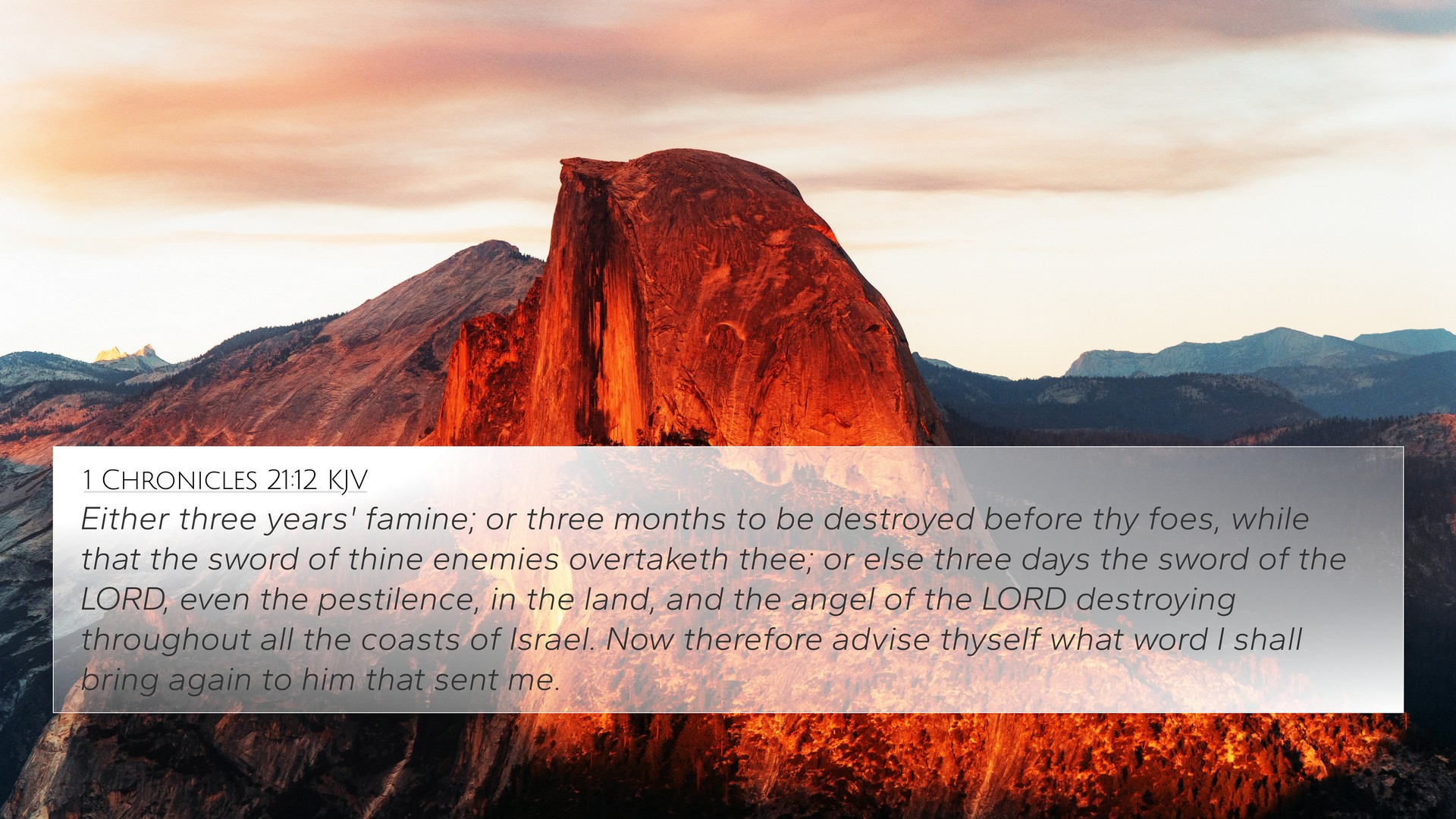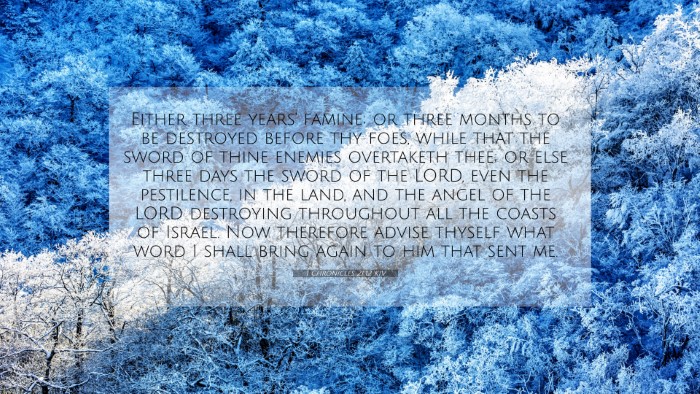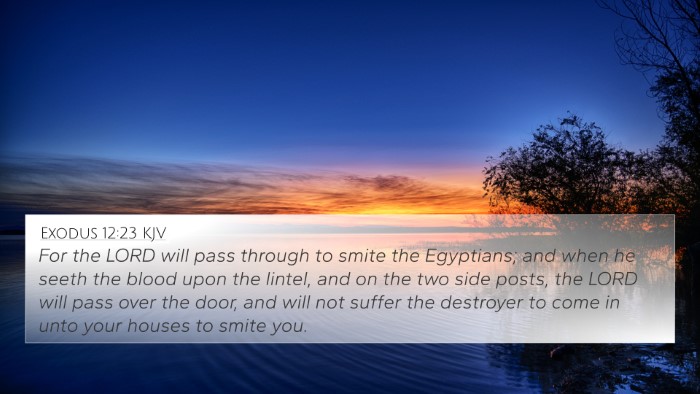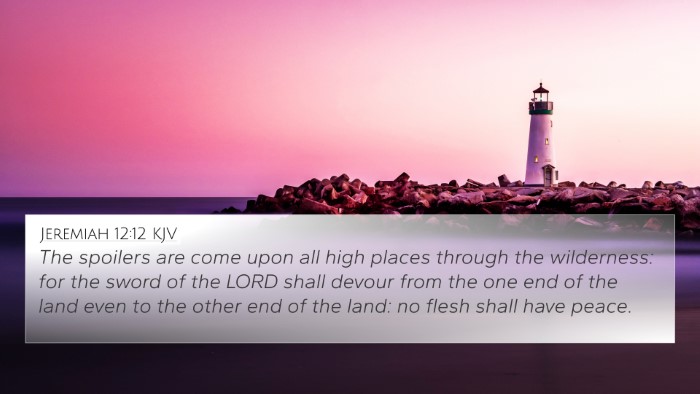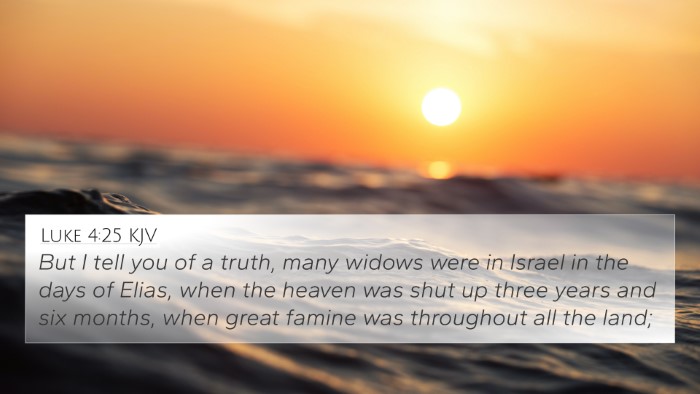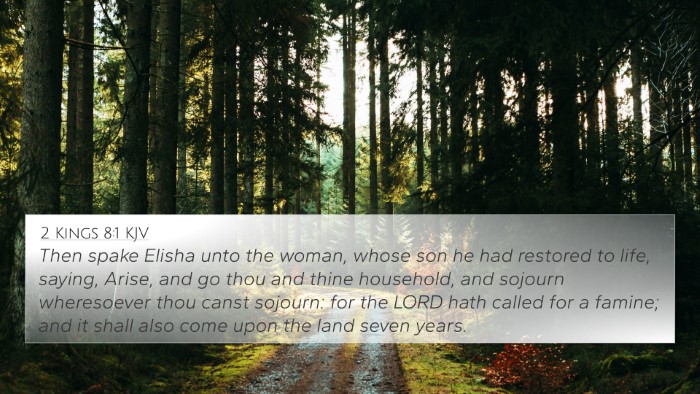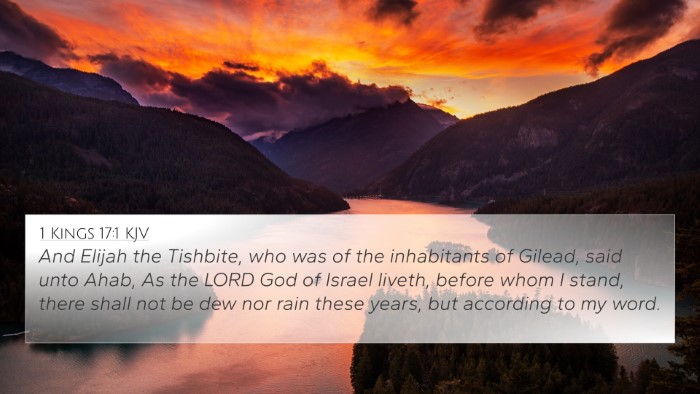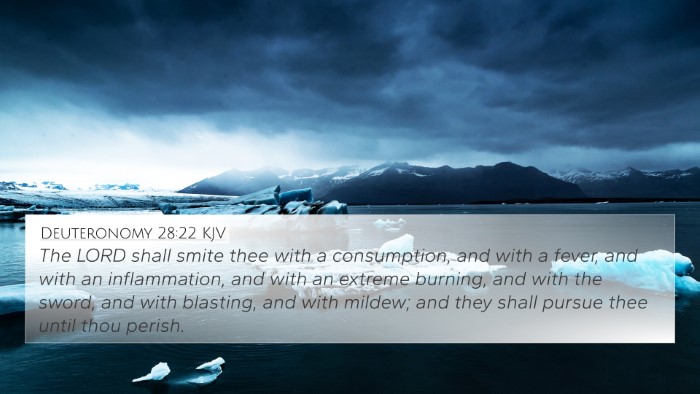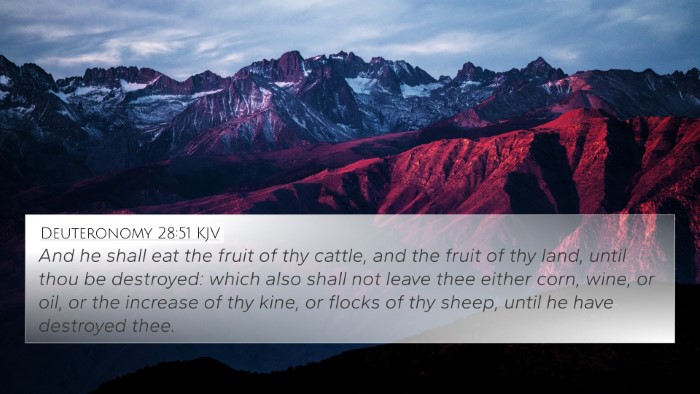Understanding 1 Chronicles 21:12
Verse: "Either three years of famine, or three months to be destroyed before thy foes, while that the sword of thine enemies overtaketh thee; or else three days the sword of the LORD, even the pestilence, in the land, and the angel of the LORD destroying throughout all the coasts of Israel. Now therefore advise thyself what word I shall bring again to him that sent me."
Verse Meaning and Interpretation
This verse presents a critical moment in King David's reign, where he is confronted with a judgment from God as a consequence of his sin in taking a census of Israel. The severity of his choices is highlighted by the three options given to him, each representing a different form of divine retribution.
Key Themes
- Divine Judgment: David must choose between three different judgments that God has laid before him, emphasizing the seriousness of his error.
- Human Agency in Divine Sovereignty: Though God sets the judgment, David’s choice reflects his agency, a theme explored in various biblical narratives.
- Consequences of Sin: David’s census was viewed as prideful and disobedient, leading to significant consequences for Israel.
Insights from Commentaries
Matthew Henry emphasizes that God’s way of punishing His people often serves to humble them and bring them to repentance. He notes that David’s circumstances compel him to confront the gravity of his actions.
Albert Barnes draws attention to the nature of the three options. He interprets them as a way of showcasing the breadth of God's mercy even in judgment, suggesting that David was to see the implications of his sin clearly.
Adam Clarke provides an analysis of how each option reflects different aspects of God's dealings with Israel, portraying God not only as a judge but as one who desires repentance and restoration.
Bible Verse Cross-References
To facilitate a deeper understanding of 1 Chronicles 21:12, here are several relevant cross-references that illustrate similar themes of divine judgment, sin, and the choices given to God’s people:
- 2 Samuel 24:13 - A parallel account of the same event, where the options are presented with slight variations.
- Exodus 32:34 - Highlights Moses’s intercession for Israel, emphasizing God’s mercy even amidst judgment.
- Psalms 90:12 - Reflects the importance of wisdom in discerning the weight of one’s days, urging a thoughtful response to God’s dealings.
- Hebrews 12:6 - Discusses God’s discipline, indicating that His correction is to be seen as evidence of His love for His children.
- Romans 6:23 - The concept of sin leading to death, akin to the themes of judgment found in the choices presented to David.
- Numbers 21:6 - This passage illustrates the biting consequences of sin and the need for repentance.
- Revelation 3:19 - A call to repentance, reflecting God's desire to restore His people despite their failings.
Comparative Bible Verse Analysis
This verse serves as a rich ground for comparative biblical analysis, as it encapsulates key narratives regarding sin and judgment throughout the Scriptures. Using tools for Bible cross-referencing, one can uncover profound inter-Biblical dialogue surrounding similar themes. The analysis can also extend into thematic connections within various books of the Bible.
How to Use Bible Cross-References
To effectively explore Bible verses that relate to each other, one can utilize resources such as a Bible concordance or a cross-reference Bible study. Identifying connections between Old and New Testament passages, for example, can shed light on recurring messages of judgment, mercy, and the human condition.
Final Thoughts
Ultimately, 1 Chronicles 21:12 invites believers to reflect on the weight of their choices and the nature of God’s discipline and mercies. By engaging with comprehensive Bible cross-reference materials, one can deepen their understanding of biblical themes and the interconnectedness of scripture.
Additional Related Verses for Study
- Proverbs 3:11-12 - Emphasizes the purpose of God’s discipline.
- Lamentations 3:33 - Reminds that God does not afflict willingly.
- James 1:2-4 - Encourages finding joy in trials, resonating with themes of endurance and faith.
